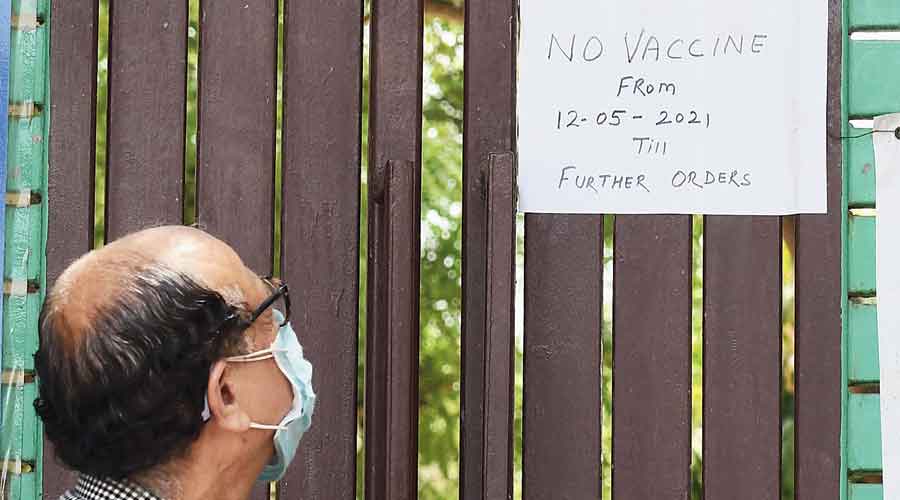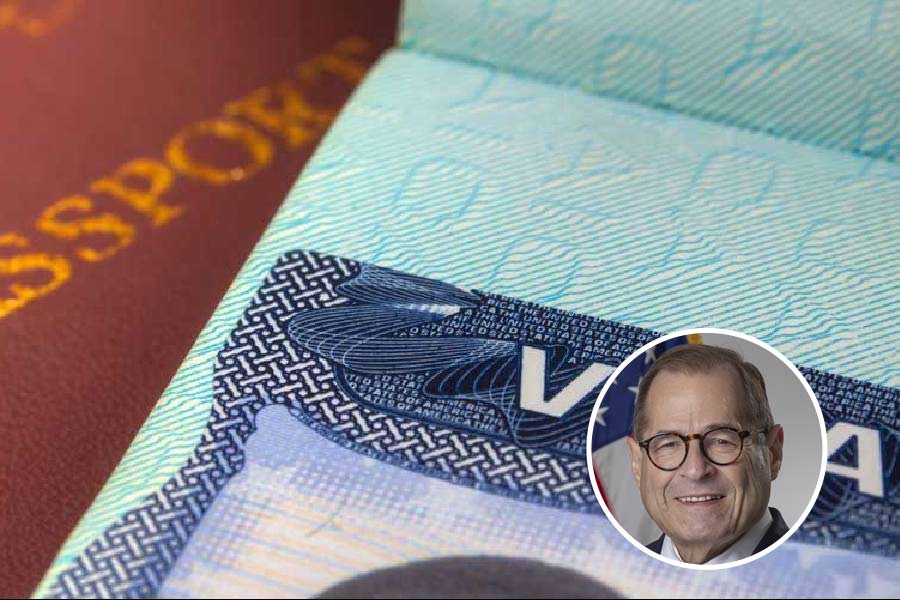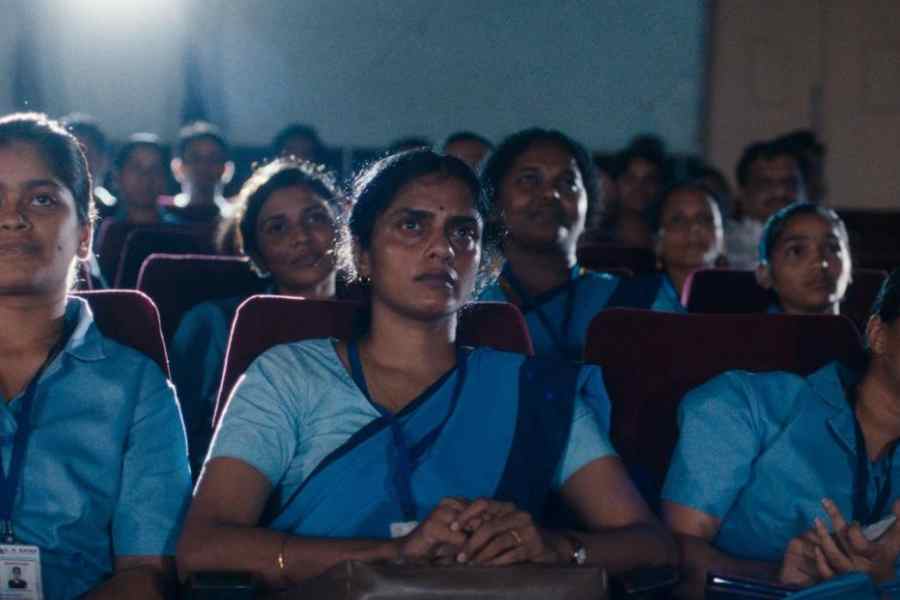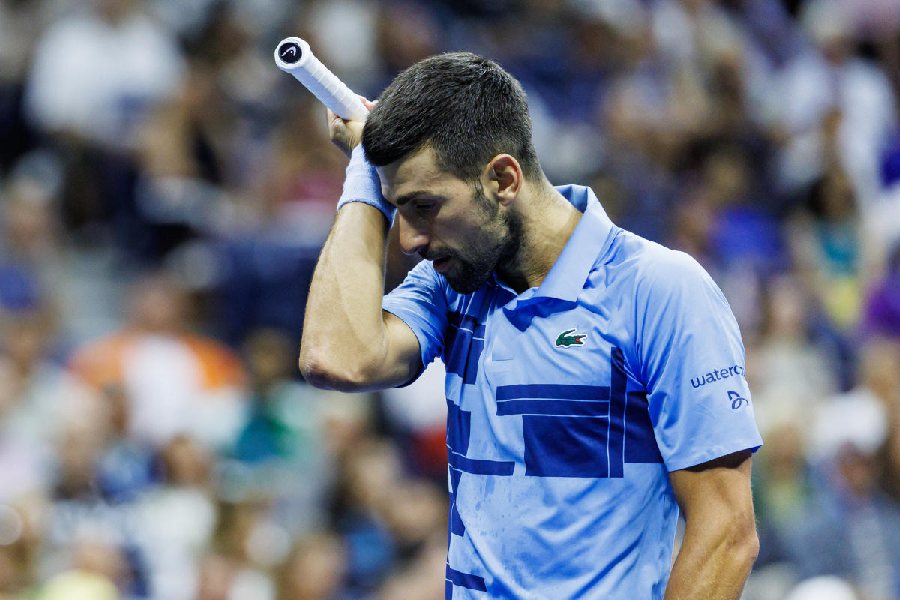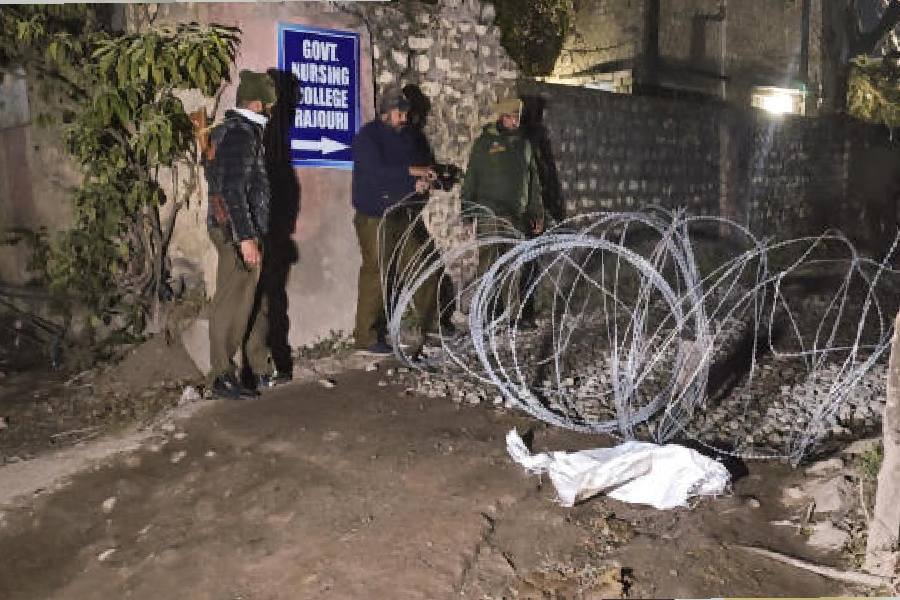The Narendra Modi government’s decision to set 16 weeks as the outer limit for the gap between the two doses of Covishield was “arbitrary” and “lacked scientific basis”, multiple medical experts have said.
The Centre, which is insisting that the decision to increase the gap was based on scientific evidence, has not cited any study that specifically mentions 16 weeks. Instead, the government has been relying on studies that have researched the impact up to 12 weeks, not 16 weeks.
While the prevailing minimum gap — 12 weeks — is indeed based on scientific studies, it is the outer limit of 16 weeks that has landed the government on what appears to be thin ice. The government on Wednesday indicated that the 16-week limit is not cast in stone and did not rule out revisiting the decision.
There is no evidence for gains in the vaccine’s efficacy if the gap between the first and second dose is delayed to 16 weeks instead of 12 weeks, according to the experts, including a senior vaccination policy adviser with the WHO.
Here, a little-noticed suggestion attributed to the World Health Organisation (WHO) comes into play.
The WHO had in March this year asked countries facing limited Covishield supplies to consider vaccinating “a maximum number of persons... with a first dose and preferentially planning for the second dose to be provided 12 weeks later or as soon as possible thereafter”.
Translated into plain language, this means: widen the gap if you are running short of vaccine supplies. The operative part is supply constraints, not the science of vaccines.
“India took a decision it had to, but the logic and explanation it has given for that is not entirely correct. It might have been simpler to just say we want to prioritise first doses and explain why,” an expert familiar with Indian and global Covid-19 vaccination campaigns told The Telegraph on Wednesday.
On May 13, the Union health ministry said it had accepted a recommendation from two advisory panels to expand the dosing interval to 12-16 weeks from the earlier 6-8 weeks.
The ministry said the panels — the National Technical Advisory Group on Immunisation (NTAGI) and the National Expert Group on Vaccine Administration for Covid-19 (NEGVAC) — decided to expand the gap after new “real-world evidence” had emerged from the UK.
“These are pure science-based decisions,” NEGVAC’s chair Vinod Paul, a senior paediatrician and member of Niti Aayog, India’s apex government think tank, had asserted, saying the NTAGI had relied on the “real-life experience” of millions of vaccinated individuals in the UK.
With the official health establishment so far unwilling to produce any “science-based” study that refers to the 16-week limit, the Modi government could have taken the nation into confidence in May and announced that vaccines were in short supply and the gap for Covishield was therefore being widened to 16 weeks.
But the Centre gave the impression that the new window of 12-16 weeks was based on science, which has been established only partially so far.
Politics, not science, appeared to have led the Centre to leave a haze around the 16-week ceiling. Union health minister Harsh Vardhan has been denying that there was any shortage of vaccines in the country.
The availability of vaccines had become a political flashpoint with Prime Minister Modi boasting about India being the “pharmacy of the world” and the Opposition alleging that he did not show the foresight to reserve more vaccines from manufacturers abroad or halt exports in the initial stages.
The Centre’s decision in April to open vaccination to everyone 18 years or older had overnight more than doubled the eligible population to more than 950 million without provisions for extra doses. At the time, India had access to roughly 85 million doses a month.
For the Union government, after having insisted there was no shortage, it would have been politically unwise to admit that the opposite was the case.
With the Centre stoutly defending the decision to double the gap to 12-16 weeks, few academics were willing to speak to this newspaper on record. They did not want to be seen as questioning the government in public.
However, a clue came from the government side itself on Wednesday.
Narendra Arora, chair of the Covid-19 working group of the NTAGI that made the recommendation for the new interval, said the 12-16 weeks gap also “gives flexibility” to people because “everyone cannot come at precisely 12 weeks”.
PTI quoted Arora as adding: “Covid-19 and the vaccination are very dynamic. Tomorrow, if the vaccine platform tells us that a narrower interval is better for our people, even if the benefit is 5-10 per cent, the committee will take the decision on the basis of merit and its wisdom. On the other hand, if it turns out that the current decision is fine, we will continue with it.”
A query sent by this newspaper to the health ministry and to Arora seeking references to studies or evidence that support the 16-week outer limit have not evoked a response.
“The decision to widen the gap was appropriate given vaccine supply constraints and the need to prioritise first doses, but there is no scientific evidence for the outer limit of 16 weeks,” said a public health expert.
Delaying the second dose allows more people to get the first dose and, experts say, such decisions take into account the potential gains of expanding the number of people with first doses and the potential risks of delaying second doses.
“Under vaccine supply constraints, it might be better to give a first dose to more people than to give two doses to half that population,” said a senior vaccination specialist who requested anonymity. “And this is particularly so if the efficacy gain with two doses is not double.”
“The latest available evidence also suggests that India should for now continue to prioritise the first dose over the second dose,” said Gagandeep Kang, professor of clinical microbiology and member of NTAGI.
Kang cited data released by the UK’s Public Health England on Monday showing that the AstraZeneca vaccine (Covishield in India) is 71 per cent effective after a first dose and 92 per cent effective after a second dose against hospitalisation from Covid-19 caused by the Delta variant, first detected in India.
“Protection from hospitalisation is more important than protection from the infection,” Kang said.
An independent academic modelling study by Gautam Menon at Ashoka University and his colleagues has also indicated that prioritising the first dose for those at most risk (the elderly and people above 45 with underlying chronic disorders) is the best option for now. The second dose grants additional protection, but appears to be less important than ensuring that as many people as possible receive the first dose.

